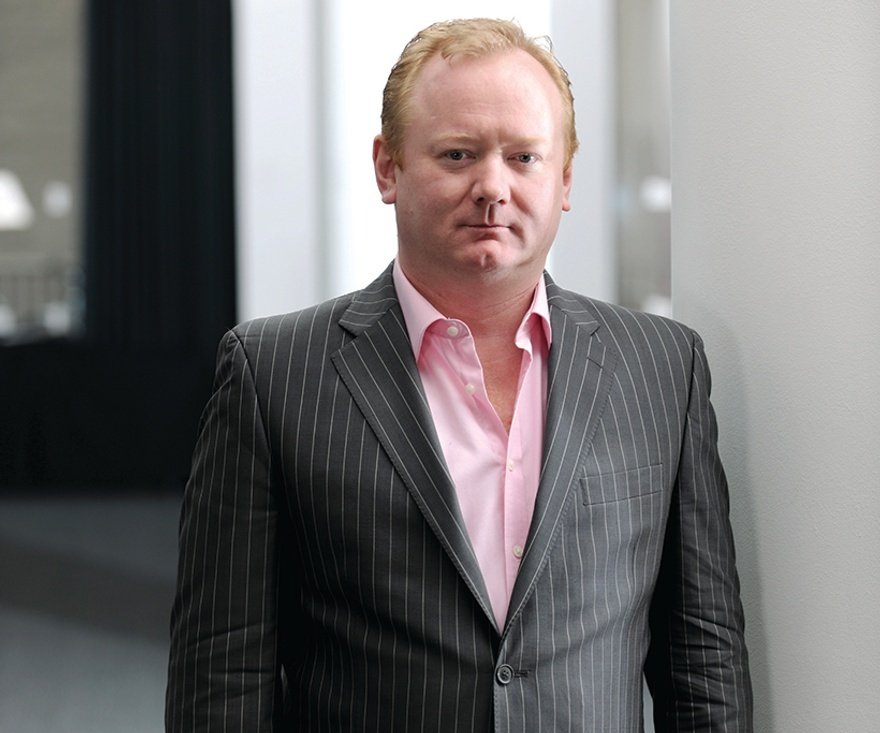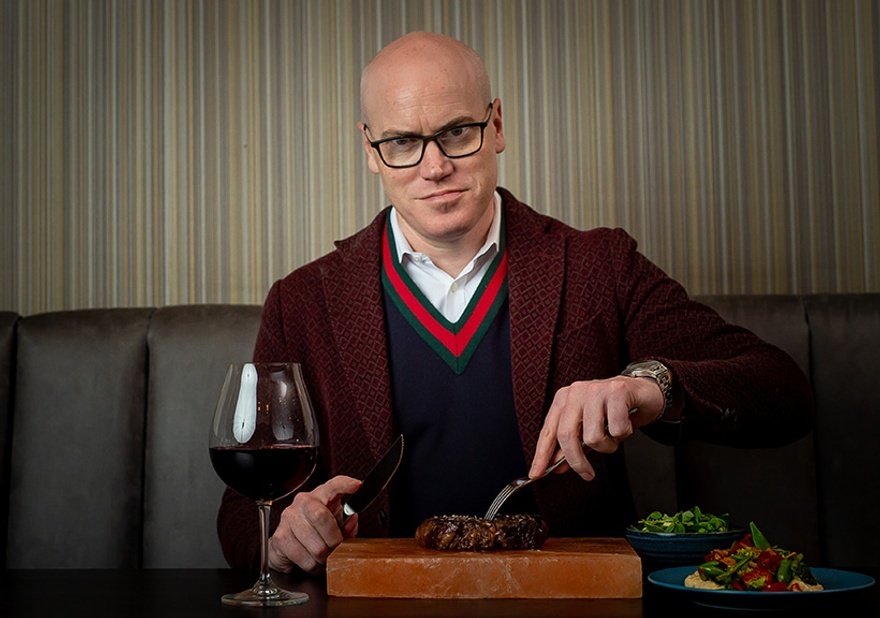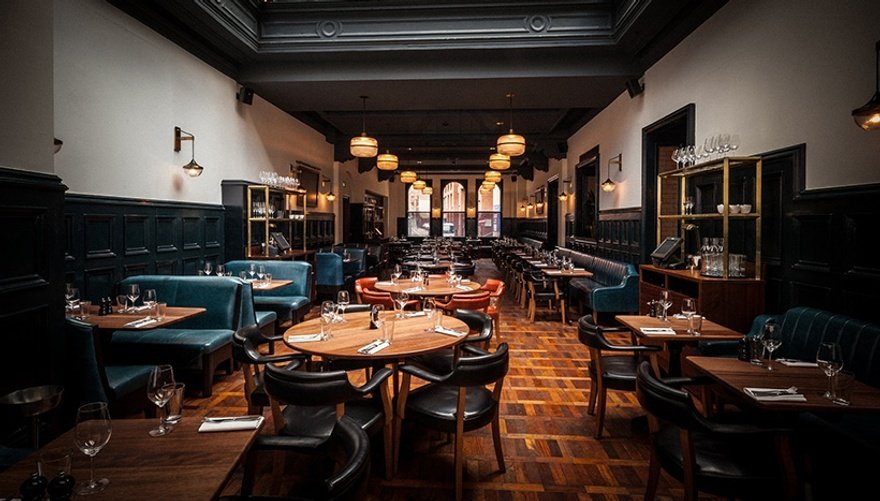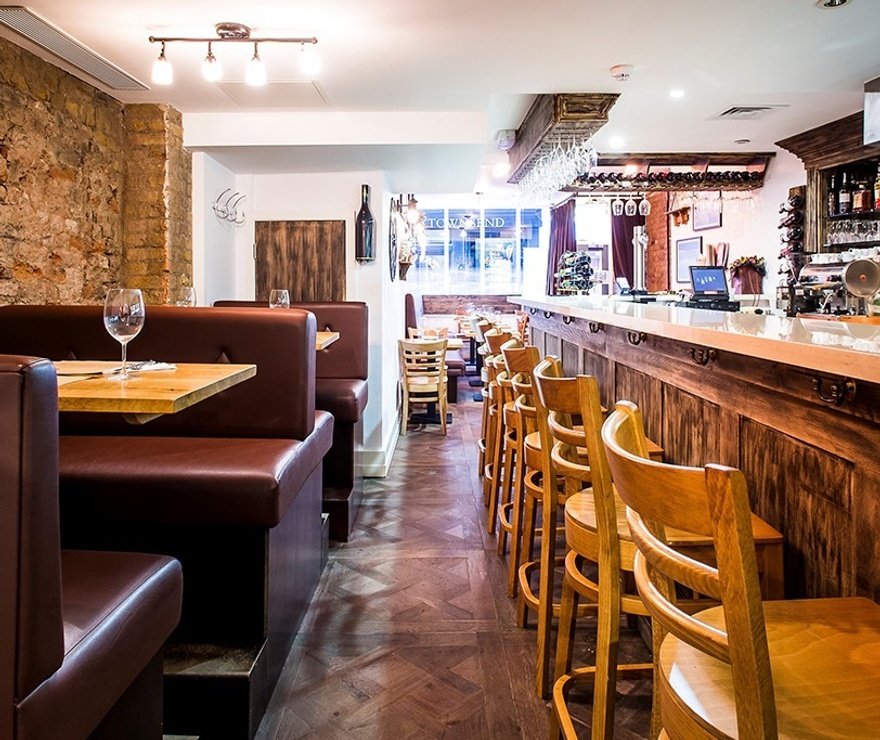The government's U-turn on getting workers back into offices has created what is in essence a second lockdown on city centres. Amanda Afiya talks to the restaurateurs most affected.
Covid-19 has had an effect on every single person living in the UK. But when it comes to the economic and social impact of the virus, nowhere has been more affected than the UK's cities and its largest towns, which represent nearly two-thirds of our economic output and more than half of our population.
While thinktank the Centre for Cities saw footfall in the UK's 63 largest city centres increase by seven percentage points in August, reaching 63% of pre-lockdown levels, the same can't be said for the country at large.
In its High Street Recovery Tracker published on 10 September, it claims that the figures hide "great geographical differences". In 14 city centres, footfall in August exceeded pre-lockdown levels, particularly in seaside towns and smaller cities, such as Blackpool, Bournemouth and Birkenhead. Conversely, large cities like Manchester and Birmingham have barely recovered half of their pre-lockdown levels of activity.
Languishing at the bottom of the table is London, recording less than a third of its pre-lockdown levels in the same month.
Last month, however, after six months of what can only be described as trading hell, restaurants particularly affected by the working-from-home directive, set out by the government at the start of the national lockdown, were starting to see the tide turning. September, it seemed, would benefit from a new government campaign encouraging office workers to return to their workplaces: UK plc would be cooking with gas.
But it wasn't to be. A rise in cases saw the government perform a U-turn just a matter of weeks later, and the working population was once again advised that those who could, should work from home. For businesses reliant on office workers, particularly in the City of London and the capital's secondary central business district, Canary Wharf, the instruction was yet another nail in their collective coffin.
And it got worse. From 24 September, prime minister Boris Johnson introduced a new raft of measures in England, intended to curb the spread of the disease. All pubs, bars and restaurants would be faced with a 10pm curfew, the sector would be restricted to table service only, facemasks would be compulsory for waiters, bar staff and non-seated customers, and for venues that previously held intimate weddings, attendees would have to be reduced further, from 30 to 15. Then, from 17 October, London was placed in the ‘high' alert level of a new three-tier system, meaning households cannot mix indoors including in pubs, bars and restaurants.
What the operators think
"It feels like the walls are closing in again and there is little belief that the government has a well-thought-out strategy at the current time," says James Horler, chief executive of the 23-strong nationwide restaurant group Ego and chairman of London-based businesses Notes Coffee and dim sum and cocktails restaurant group Ping Pong. And, he believes, the worst is yet to come.
There is little belief that the government has a well-thought-out strategy at the current time
"December trading is critical for all retailers and the London restaurant and bar scene, but it won't happen this year. Therefore I foresee many more casualties in the next six months and unemployment rising hugely in November and December."
The government's recent missives have been somewhat conflicting, according to many restaurateurs. "The Eat Out to Help Out initiative in August was ultimately a vote of confidence in our sector," says Martin Williams, chief executive of M and Gaucho Restaurants. "It was the government giving us a stamp of approval – ‘it's safe to go back to restaurants and we endorse them and encourage you [the customer] to go back to them, and here's an incentive'. But the decisions imposed on 24 September were the opposite.
"Until people are encouraged to go back out to the world of work, the city centre and West End restaurants are going to struggle hugely."
For John Nugent, London-based chief executive of foodservice and events business Green & Fortune, the past 12 months have brought a rollercoaster of emotions. Last November, together with chef and restaurateur Richard Corrigan and publican Tony Gibney, Nugent launched Daffodil Mulligan near Old Street.
"Within a few weeks, the business was getting into a great pace and rhythm," says Nugent wistfully, "but then to see the numbers drop like a stone in those last few days of March was heart-breaking for all of us."
Having closed for five months, Daffodil Mulligan reopened on 1 September. "It's a joy to have it trading again, the fires re-lit and hospitality in the air," says Nugent. "We created a multifaceted business in the short time we were open prior to lockdown, and the encouragement and support from our customers and friends has been immense."
But trading is, he advises, nowhere near pre-lockdown levels. "The lack of people working in the area during the day means you have a lot to catch up on in the evening services. The reduced hours have a real effect. Resuming our music programme is difficult because of the 10pm curfew; our licence allows us to open till 2am at the weekends, so early closing is devastating."
While the threat of a ‘circuit breaker' lockdown in London looms large, Nugent argues "that we are almost in virtual lockdown now, with just very low levels of trading". He feels that the challenge for the government is twofold: how do we deal with the lengthening of this crisis; and when will reopening and rebuilding commence?
"We need a clear roadmap from government on when we can get our businesses fully open and when restrictions on numbers will be lifted for events. Doing this will create confidence in the market and move people to start planning ahead. This is important on so many levels. The current policies are enforced restrictions on trade. There are no equitable measures in place to counter-balance this or offer support to protect what are in essence very good businesses."
M and Gaucho's Williams agrees. Eat Out To Help Out helped, he says, "but that was very much an August thing, and although we [as a group] continued it into September, the City restaurants are definitely struggling. They were starting to get busier, but then the ludicrous announcement to work from home once more kicked in and I anticipate that until that's lifted, they will remain 50%-70% negative for the rest of the year, to be honest."
Every business has had to look at every cost, certainly every essential cost, and many restaurants will be leaner businesses as a result. For Williams, all being well, the pandemic will also fast-track a review on rates.
Meanwhile, he says he hopes the government realises that there isn't a single voice currently saying the curfew is a good idea. "There would be no point saving the amount of jobs they have done, a great furlough system, protecting tenants from landlords, VAT cuts, rate cuts, everything else, if ultimately, at this stage, they are going to abandon support for the industry. It would have been a case of wasting money, kicking the can down the road.
"They need to follow up with some really good initiatives with further support if that's what they deem is necessary. My argument would be that it's not necessary and it's time now to support the economy as much as the health of the nation."
It's time now to support the economy as much as the health of the nation
Nugent concurs, adding that London operators need a number of things to happen to encourage people back to the capital. There needs to be many campaigns, he says, supported by central government, the mayor's office and London & Partners. "They need to bang the drum for London. The absence of this and a reopening strategy means it will take longer to revive business activity. I worry that without these interventions many companies will not survive."
Trading at Hawksmoor
For Will Beckett, co-founder of British steakhouse group Hawksmoor, the beginning of lockdown was probably one of the most stressful periods of his life. The operator, who oversees eight restaurants throughout the UK, says: "We were watching things fall apart so quickly and had no idea of what the next day would bring, let alone the next few weeks or months."
But it didn't stop the restaurant group from being one of the first to bounce back, and it reopened its first restaurant (Borough) on 9 July and its final restaurant (Guildhall) on 14 September. "Since reopening, they've been trading well," says Beckett, "all things considered. Most are closed for lunch Monday to Friday, and all are operating at circa 70% of capacity. For the services that we are open for, we have mostly been happy. I think there was quite a lot of pent-up demand for Hawksmoor!"
Aware that the City had "perhaps suffered the most", Guildhall was the last restaurant in the group to reopen as it's nearly entirely reliant on people who work in offices nearby, many of whom have long commutes and can work from home. "Since we opened, it has felt busy enough to have a pleasant atmosphere without feeling rammed. It's actually a pretty good destination restaurant – quieter in terms of public transport, easier to drive to, lots of room in which to achieve social distancing."
Fortunately, the rule of six has had little impact on the group. "Even before that came in, 75% of our tables post-lockdown were tables of two. Very few were seven-plus"
London's newly imposed Tier 2 status is likely to have an impact, however: "We're more reliant on adults from different households mingling than we are on big household meet-ups.
"It's been a bad thing for the industry, in terms of what it's done for confidence."
In September, Beckett says Hawksmoor was starting to see more people venturing back into the centre of town, but says he feels "there's something strange going on" with the curfew in terms of people on the street.
"It's a precarious situation now, economically speaking. It is extremely quiet, but the people who are working in London are a resilient bunch who find value in working out of the home. I'd like to see the government sort out the rent issues, soften or reverse the curfew, and stop scapegoating the hospitality industry."
But there have been some positives to come out of the pandemic for Hawksmoor. "We've found a new closeness as a team. We've felt freed from some of the things that, with hindsight, seem so unimportant now. I think we've all had time to think about the question: ‘Is this what I want to do with my life?'. For me, it was edifying to realise that the answer is yes!"
Enoteca Super Tuscan
In the capital's financial districts, many restaurants are yet to reopen, and it's clear to see why. As an example, Canary Wharf, which boasts 101 cafés, bars and restaurants, enjoyed a working population of about 120,000 pre-pandemic. In August, occupancy within its high-rise offices was believed to be just 10%-12%.
Just a few miles across town, Spitalfields-based restaurateurs Nick and Simon Grossi, who run Italian wine bar and restaurant Enoteca Super Tuscan, are keeping a close eye on the movement of office-based workers.
"Our business relies heavily on people working in offices in the City, and, of course, many of those are now working from home," explains Simon. "We have remained closed until this trend changes.
"Our main concern, from a business point of view, is reduced numbers, increased costs and rent," says Simon, adding that social distancing will seriously impact covers in the bijou, 30-seat restaurant. "Rents in London are particularly high and while our landlord has been understanding, we have still had to pay rent, albeit with a reduction. Rent is going to be one of the key factors in restaurants failing, particularly in areas like the City of London, where office closures, fear of tube travel and highly reduced footfall is seriously impacting already reduced capacity. It will be virtually impossible for businesses to pay their original rents and survive."
Pre-pandemic, Super Tuscan's core customer base was at lunchtime. It would comfortably fill the restaurant with people from banks and offices in the City, then the evening trade hailed from a mix of people heading to the restaurant to eat straight from work (it reopened at 5.30pm), tourists and locals. "We attract a lot of people on their way home, as Liverpool Street station is only a four-minute walk away," explains Simon.
While the numbers that return to work will vary from company to company, a section of the Grossis' customer base that may take even longer to return are their overseas clients, many of whom would visit the restaurant when they were being entertained by their London-based colleagues; others would dine in Super Tuscan when they were in London on holiday.
"Our client base has always been diverse," concludes Simon, adding that he and Nick plan to reopen Super Tuscan at the beginning of November. "Lots of our family and friends in Italy recommend us to their Italian friends visiting London. Often, those people come back more than once during their trip, but, sadly, very few Italians are visiting London at the moment."
Continue reading
You need to be a premium member to view this. Subscribe from just 99p per week.
Already subscribed? Log In














